RSPB lodges Natural World Heritage site bid for wetlands area
- Published
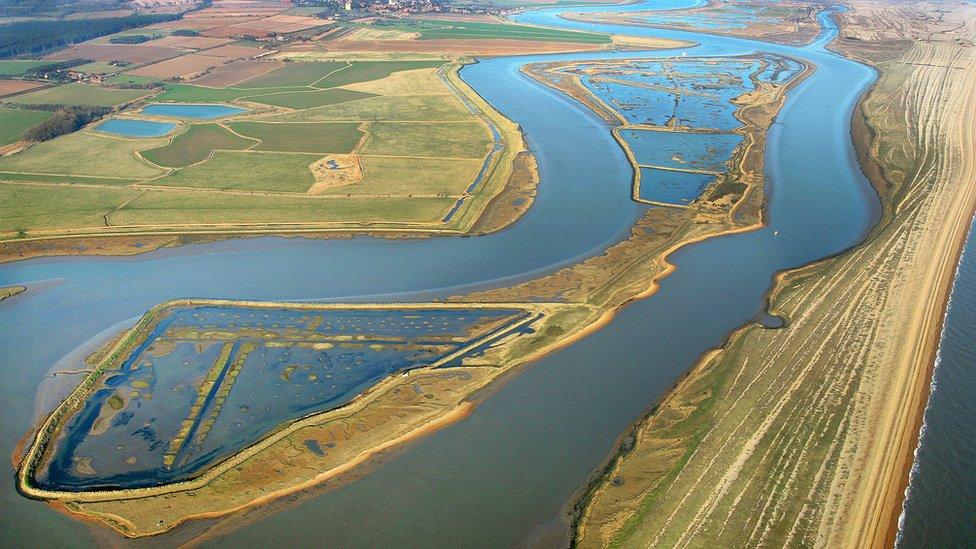
The area involved in the bid covers miles of shoreline, including, Havergate Island Nature Reserve in Suffolk
An application has been submitted for wetlands along the east coast of Britain to become a Natural World Heritage site.
The bid, submitted by the RSPB, includes the Humber estuary, Lincolnshire, through Suffolk, Norfolk, Essex, to The Thames in Kent.
The charity said a wide range of species use it as "an essential home and refuge" during migration journeys.
It has been submitted to the Department of Culture, Media and Sport.
A decision on whether it will be added to the UK's Tentative List of World Heritage sites is expected early next year.
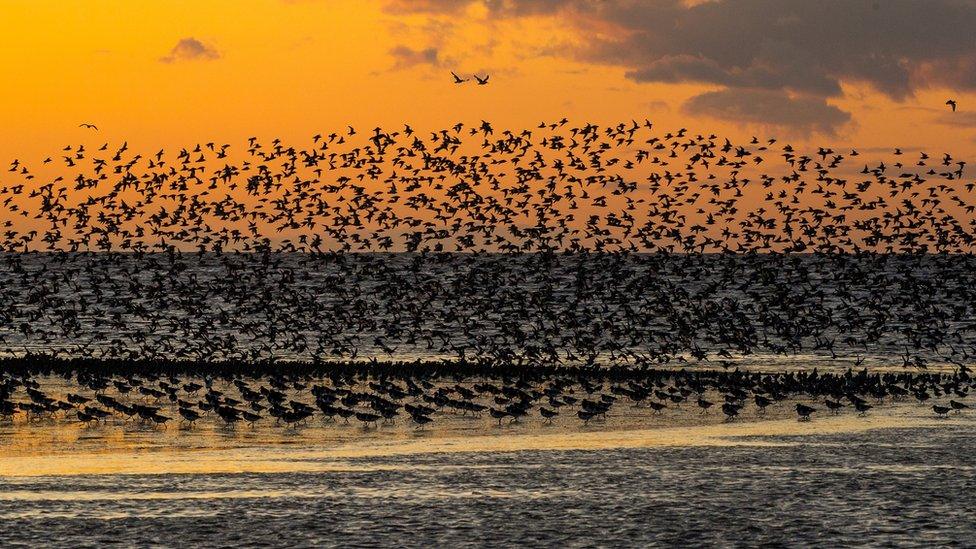
A report, by marine and coastal habitat consultants ABPmer, found the east coast had "outstanding universal value"
A report, by marine and coastal habitat consultants ABPmer, found the east coast had "outstanding universal value" due its world class network of coastal wetlands which support globally important migratory bird populations, the RSPB said.
One billion birds are reliant on the area, which covers 420,079 acres (170,000 hectares), each winter to shelter from the harsh conditions in Scandinavia, Canada, Greenland and Siberia.
The shorelines include a "a rich buffet of invertebrates" for birds to feed on, and its marshes are places to fish and for tourists to visit, the report said.
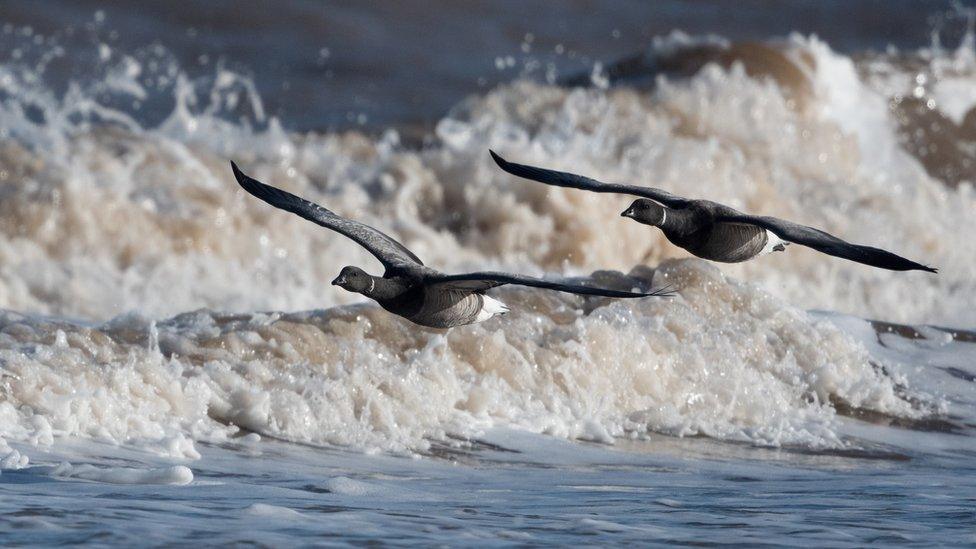
Brent Geese can be seen around the Suffolk coast
Adam Rowlands, RSPB England area manager for Suffolk, said: "In Suffolk the coastal estuaries will be welcoming large numbers of dark-bellied brent geese, avocet, black-tailed godwit and knot for the winter, whilst coastal marshes will ring to the whistling cries of wigeon, rubbing shoulders with beautiful pintail and white-fronted geese."
Russell Leavett, a volunteer at the Stour Estuary reserve, in Suffolk, said it would be "incredible" to gain heritage site the recognition.
"I've experienced some of the most amazing natural spectacles as a volunteer - from the arrival of avocets in recent years to getting to know a long-established group of mute swans at Manningtree."
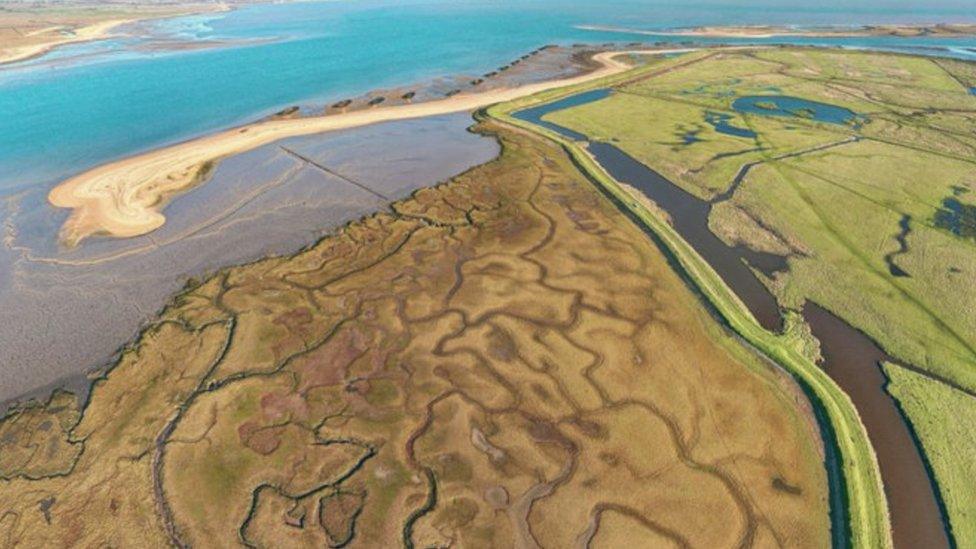
The coast is protected through habitat enhancement at Horsey Island, Essex, the RSPB said
The UK has two Natural World Heritage sites - Dorset and East Devon Coast and the Giant's Causeway and Causeway Coast, in Northern Ireland.
If successful, the east coast could join some of the world's most iconic sites including the Great Barrier Reef, the Galapagos Islands and Mount Kilimanjaro, the RSPB said.
The application has the support of the National Trust, Wildfowl and Wetlands Trust, local authorities and The Crown Estate, it added.

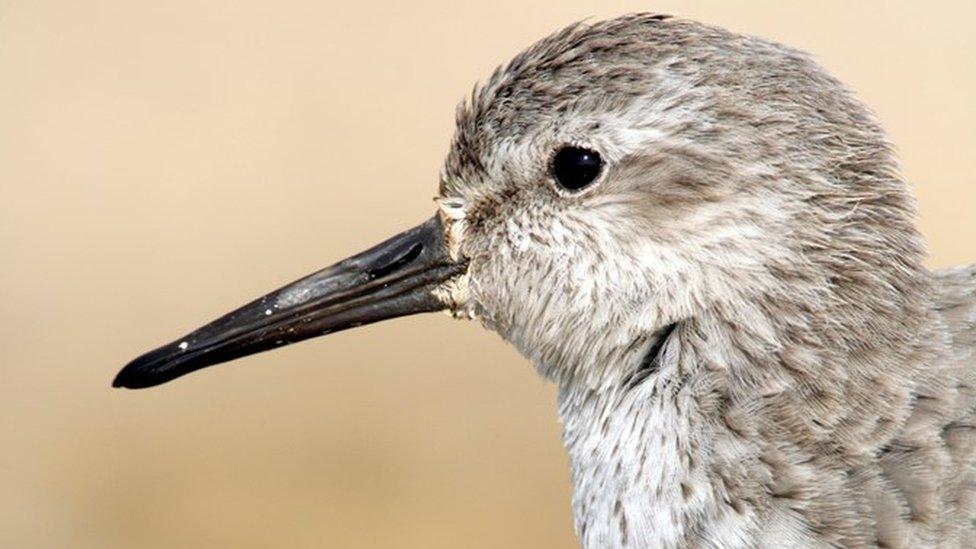
Knot Calidris canutus at Freiston Shore RSPB reserve, The Wash, Lincolnshire
East coast wetlands:
The wetlands support more than 155 different bird species
The area is part of the East Atlantic flyway, one of eight major routes in the world used by migrating birds
About 12m tonnes of carbon is present in the top 3ft (1m) of the saltmarshes, mudflats and seagrasses
Saltmarshes can reduce wave height by around 20% over a 40m distance, providing a flood defence during storms
Source: RPSB, external

Find BBC News: East of England on Facebook, external, Instagram, external and Twitter, external. If you have a story suggestion email eastofenglandnews@bbc.co.uk, external